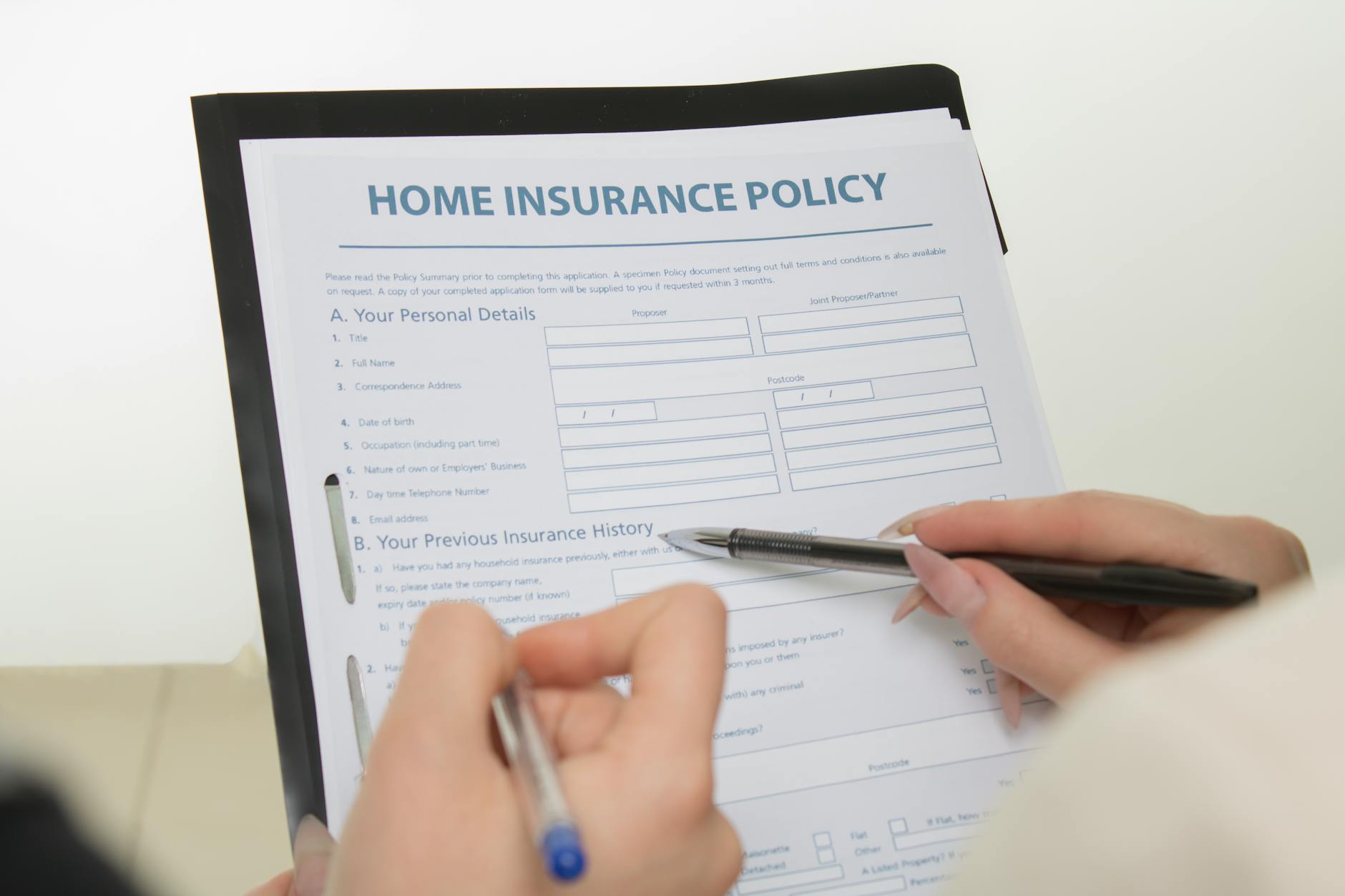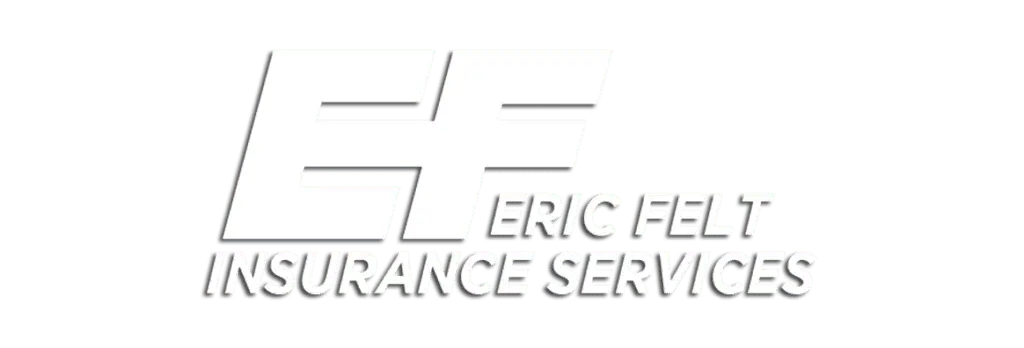Finding the right insurance agent isn’t just about convenience—it directly impacts your peace of mind and financial security. The right agent understands your needs, explains coverage clearly, and helps you make informed decisions. With so many options, choosing someone who truly prioritizes your best interests is key. In this post, you’ll learn how to identify an agent who aligns with your goals and offers the support you deserve.
Understanding the Role of an Insurance Agent
When it comes to insurance, understanding the role of an agent is crucial. Insurance agents act as guides, helping you navigate policies and ensuring that your coverage aligns with your unique needs. Picking the right one can feel overwhelming, but with the right knowledge, you’ll know what to look for. Below, we’ll break down the types of insurance agents and their key responsibilities.
Types of Insurance Agents
Insurance agents fall into three primary categories, each serving a specific function within the insurance system. Knowing these distinctions helps you pinpoint who to work with based on your preferences.
- Independent Agents: Independent agents work with multiple insurance companies. They offer a variety of policies and can compare options to find the best fit for your specific situation. Think of them as personal shoppers—focused solely on meeting your needs rather than representing one brand.
- Captive Agents: A captive agent represents one insurance company exclusively. Their loyalty lies with the company they work for, which means they offer only that company’s products. While their expertise on their employer’s policies is top-notch, their options are more limited.
- Brokers: Brokers take the role of a middleman between you and insurance providers. Unlike agents, brokers work on your behalf—not the insurance company. They specialize in finding the best policies across a range of providers, working to secure competitive rates that match your requirements.
Ultimately, the type of agent or broker you choose depends on how much flexibility and advice you need.
Responsibilities of an Insurance Agent
Wondering what an insurance agent brings to the table? Their job goes far beyond selling policies. They handle various tasks designed to simplify the insurance process for clients.
- Assessing Needs: Insurance agents listen carefully to understand your coverage goals. Through questions and consultations, they identify potential risks and recommend policies tailored to your life.
- Policy Guidance: Agents provide clarity. They walk you through complex policy terms, ensuring you grasp the fine print before committing.
- Claims Assistance: If something goes wrong—a car accident or a home flood—a good agent helps you file claims and works as a liaison with the insurance company.
- Risk Management: Beyond writing policies, they help you mitigate risks. For example, they might recommend security upgrades to your home for lower premiums.
- Ongoing Support: Your situation can change over time. A solid agent reviews your coverage periodically and adjusts it as needed. Think of them as your insurance partner.
Combining these responsibilities allows agents to build trust and long-term relationships with their clients—a win for both sides.
 Photo by Kampus Production
Photo by Kampus Production
Assessing Your Insurance Needs
Before you can choose the right insurance agent, you need to understand your own insurance needs. Whether it’s protecting your home, business, or car, identifying what you require makes the search for the ideal agent more effective. Let’s examine how to pinpoint your coverage needs and evaluate risk factors that impact your decisions.
Identifying Coverage Requirements
Figuring out what coverage you need starts by assessing the essentials. Insurance isn’t one-size-fits-all, so ask yourself the following questions to create a clear idea of your unique needs:
- What do you want to protect? Is it your home, your health, your family’s income, or your business?
- Are any policies mandatory? Some insurance types, such as auto insurance, are mandated by law.
- Do you already have insurance? Review your existing policies to identify any coverage gaps.
Here’s a simple way to think of it: insurance is like an umbrella. You need the right size and strength depending on your situation. For instance, a business owner may need liability coverage, while a newlywed couple might prioritize life or renters insurance.
When considering coverage requirements, it’s also helpful to anticipate major life changes. Starting a family, buying a home, or expanding your business can dramatically shift your insurance priorities. Stay proactive about reviewing your needs regularly.
Evaluating Risk Factors
Once you know what you want to protect, you’ll need to analyze the risks involved. Risk factors influence the type and amount of coverage you need—and they differ depending on whether you’re insuring personal or business assets.
Here are key risk factors to consider:
- Personal Risks:
- Health conditions that could increase medical costs.
- Location risks, such as living in a flood zone.
- Personal assets like cars, jewelry, or collectibles.
- Business Risks:
- The nature of your industry (e.g., high-risk professions like construction).
- Potential liabilities, such as customer injuries on your premises.
- Property risks, including fire or vandalism.
For a more accurate assessment, you can prioritize risks by likelihood and potential financial impact. Tools like insurance calculators or consultations with financial professionals can also clarify the coverage you need.
For example, imagine you own a boutique store in an area prone to hurricanes. You’d need strong property insurance, plus business interruption coverage to safeguard your revenue. Or, if you manage a tech startup, cyber liability insurance might be critical to guard against data breaches.
By understanding your unique risk profile, you can create a tailored insurance plan that protects what matters most. This clarity will also help when discussing options with your agent.
 Photo by Mikhail Nilov
Photo by Mikhail Nilov
Researching Potential Insurance Agents
Choosing an insurance agent isn’t just picking a name from a list; it’s about finding someone trustworthy and knowledgeable. A little research goes a long way to ensure you’re working with someone who has your best interests in mind. From word-of-mouth referrals to online due diligence, each step is crucial in your decision-making process.
Referrals and Recommendations
Start by tapping into your personal network. Friends, family, and colleagues who’ve had good experiences with an insurance agent can provide invaluable recommendations. Ask specific questions:
- Did the agent clearly explain policies and coverage?
- Were they responsive and easy to contact?
- Did they help with claims or policy adjustments?
Think of this as gathering testimonials from people you trust. Hearing about someone else’s firsthand experience can save you time and help you avoid agents who don’t deliver what they promise. It’s like trying out a new restaurant; you trust your friend’s review more than a random ad.
Online Reviews and Ratings
While personal recommendations are great, they don’t always provide the whole picture. Head online to read reviews and ratings of potential agents. Platforms like Yelp or Google Reviews can offer insights into an agent’s professionalism, communication, and problem-solving skills.
Check for recurring themes in reviews. Are clients consistently praising the agent’s expertise, or do you notice common complaints about slow response times? Balanced reviews (both positive and negative) are usually more reliable than glowing, too-good-to-be-true feedback.
Additionally, browse the agent’s website or LinkedIn profile. Do their offerings match your needs? Are they active in professional networks? This extra step can help validate their credibility.
 Photo by Mikhail Nilov
Photo by Mikhail Nilov
Professional Credentials
Don’t forget to verify that potential agents are fully qualified. Licensing and certifications are non-negotiable in the insurance world. Here’s what to look for:
- State Licensing: Confirm the agent is licensed in your state. You can usually verify this through your state’s insurance department.
- Professional Certifications: Recognized designations such as Chartered Property Casualty Underwriter (CPCU) or Certified Insurance Counselor (CIC) signal a commitment to ongoing education in the field.
- Experience: While credentials matter, experience often speaks volumes. Someone with years in the business may better navigate tricky scenarios and complex policies.
Think of credentials as the foundation of a house—without them, everything else crumbles. Double-checking an agent’s qualifications and track record ensures you’re in reliable hands.
Questions to Ask Potential Agents
When choosing an insurance agent, asking the right questions can save you time, money, and stress in the long run. It’s not just about the policies they sell—it’s about whether they understand your unique needs and are genuinely invested in protecting your financial future. Here are some key areas to focus on when interviewing potential candidates.
Experience and Specialization: Ask about the agent’s experience in your specific type of insurance.
Experience matters when it comes to insurance. Just like you’d trust a seasoned carpenter to build a sturdy house, you’ll want an agent who knows the ins and outs of the type of coverage you’re shopping for. Ask how long they’ve been in the industry and whether they specialize in policies like yours. Don’t hesitate to dig into specifics—questions like:
- Have you worked with clients in situations similar to mine?
- Do you have a specialization in auto, home, health, or business insurance?
Agents with deep experience in a certain area are often better equipped to anticipate potential issues and offer tailored advice. For example, a business owner might look for an agent who understands liability and property insurance, while a new homeowner might prioritize someone familiar with flood or disaster coverage.
Communication Style: Evaluate how the agent communicates and whether it meets your preferences.
How an agent communicates can make or break your experience. Everyone absorbs information differently—some prefer straightforward emails, while others might find phone calls or face-to-face meetings more effective. Ask the agent how they typically communicate with their clients:
- Are they responsive to calls, emails, or messages?
- Do they explain policy terms in a clear, easy-to-understand way?
Look for someone who speaks your language—literally and figuratively. A good communicator will break down complex terms without overwhelming you. If they’re rushing or being vague, it might be a red flag. Think of it like hiring a teacher—you want someone who can teach, not confuse.
Fee Structure: Discuss how agents are compensated and any potential fees involved.
Money matters, especially when it comes to understanding an agent’s fee structure. Insurance agents are generally compensated in one of two ways: commission or flat fees. Here’s what to ask:
- Are your services included in the policy premium, or is there an additional charge?
- Do I pay you directly, or is your commission handled by the insurance company?
- Will switching policies or companies impact your compensation?
Knowing this upfront can help you avoid surprises or hidden charges. If the agent gets a commission, ensure their advice aligns with your best interests, not just their bottom line. Transparency here indicates reliability.
Claims Process Assistance: Inquire about how the agent assists clients during the claims process.
One of the most critical times you’ll rely on an insurance agent is during a claim. Ideally, they act as your advocate, walking you through each step and ensuring delays or denials are minimized. Here’s what to ask:
- What role do you play if I need to file a claim?
- Will you actively follow up with the insurance company on my behalf?
- What kind of support do you provide in managing paperwork or resolving issues?
A hands-on agent can make the claims process smoother, minimizing your stress during tough times. For example, they might help with submitting documents or even act as a go-between with the insurer. Someone who promises to “be there when it counts” should truly mean it.
 Photo by Antoni Shkraba
Photo by Antoni Shkraba
By addressing these core topics, you’ll have a clearer idea of who the right agent is for your needs. Keep in mind, the best agent isn’t just someone with answers—they’re someone who values your questions and takes every opportunity to earn your trust.
Making the Final Decision
Choosing the right insurance agent means more than just going with the first name that comes up in a search. It requires comparing options, understanding each candidate’s strengths, and finally, trusting your instincts. This decision will impact your coverage and peace of mind, so it’s worth taking the time to weigh all the factors.
Comparing Agents
When comparing potential insurance agents, it’s important to create specific criteria while considering both professional and personal aspects of the agent’s practices. Use these points to guide your decision:
- Licensing and Credentials Confirm their license is up-to-date in your state. Look for designations like Certified Insurance Counselor (CIC) or Chartered Property Casualty Underwriter (CPCU), as these reflect expertise and ongoing training.
- Experience in Relevant Areas Ask how long they’ve been in the industry, and specifically, whether they’ve worked with clients like you. For example, if you’re a business owner, ensure they have a track record of handling commercial policies.
- Availability and Responsiveness Pay attention to their communication style. Do they respond promptly to calls or emails? An agent who’s easy to reach can make all the difference during emergencies or claims.
- Client Reviews and Testimonials Look up online reviews or ask for client references. Patterns in feedback can reveal critical red flags, such as poor customer service or lack of expertise.
- Policy Choices Independent agents can offer a broader range of options compared to captive agents tied to one company. If you value flexibility, this might weigh heavily in your selection.
Breaking it down like this can help you stay objective and avoid being swayed by factors that are less relevant to your needs.
 Photo by Kampus Production
Photo by Kampus Production
Trust and Comfort Level
Beyond qualifications, your relationship with your agent should feel comfortable and trustworthy. After all, you’re sharing personal or sensitive information, so establishing a solid rapport is key. Here’s how to evaluate this:
- Gut Feeling During the First Meeting Did the agent actively listen to your concerns? Were they patient while explaining terms? Trust your instincts when gauging whether they have your best interests at heart.
- Transparency A trustworthy agent will be upfront about pricing, policy limitations, and potential challenges. If they’re evasive or overly vague, that’s a red flag.
- No High-Pressure Tactics Avoid agents who push you to make quick decisions or upsell unnecessary coverage. A good agent will allow you time to think and make informed choices.
- Willingness to Educate Is the agent willing to break down complicated terms and help you truly understand? This demonstrates genuine care, not just a desire to close a deal.
Ultimately, this is someone you’ll rely on during pivotal moments in your life. Make sure you feel good about picking up the phone and calling them when questions or claims arise.
Conclusion
Choosing the right insurance agent is more than just a business transaction—it’s essential for safeguarding your future. The agent you select will play a critical role in protecting the things that matter most to you, from your home to your family and livelihood. By now, you’ve seen how important it is to weigh your options carefully, evaluate credentials, and determine whether an agent aligns with your needs and values.
As you navigate this journey, always keep your priorities in focus. Whether you value personalized care, a broad range of policy options, or excellent communication, there’s an agent out there who can deliver. Taking the time to research and interview candidates helps ensure you’re making a choice you won’t regret.
Use the strategies we’ve discussed—like asking the right questions, scrutinizing reviews, and assessing compatibility—to find an agent who not only meets but exceeds your expectations. After all, insurance isn’t just about policies; it’s about relationships. The right partnership can provide peace of mind and clarity, paving the way for a strong financial future.



